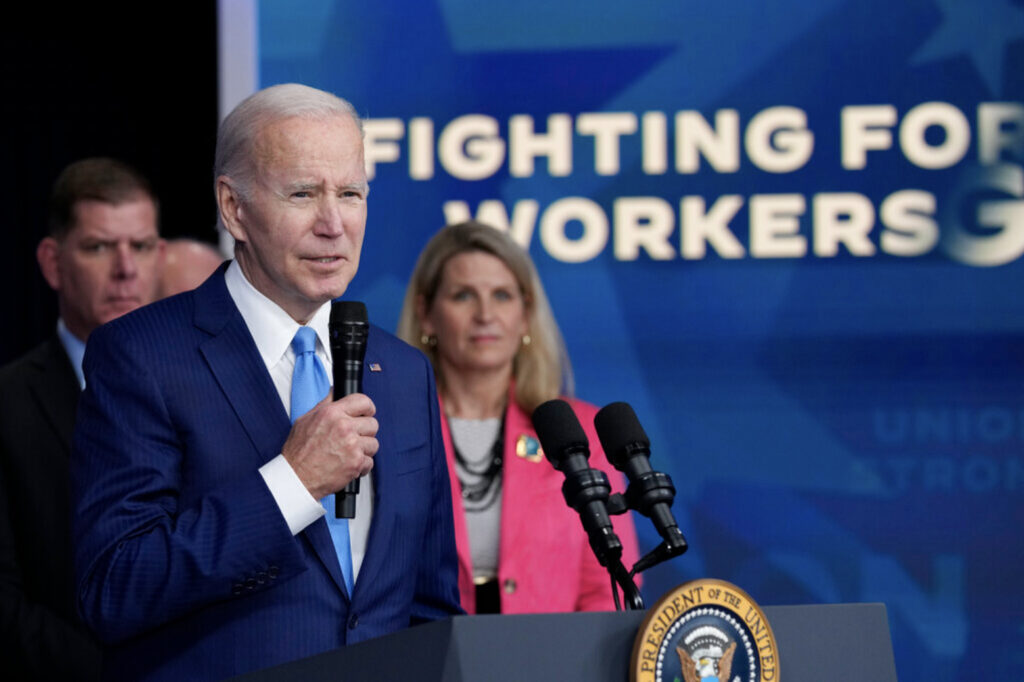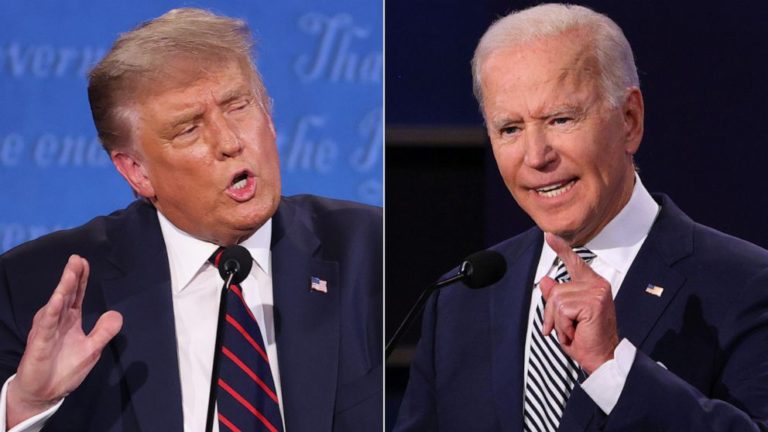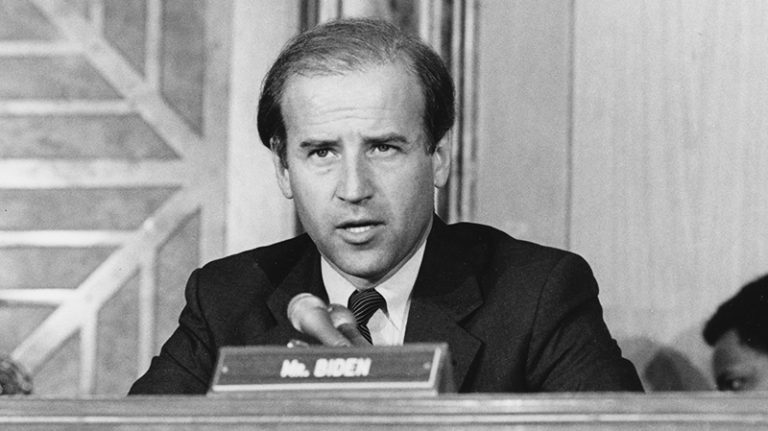
President Biden recently made history as the first sitting U.S. president to join a picket line during the United Auto Workers’ (UAW) historic strike in September. Past presidents have shied away from these kinds of overt stands, often serving as mediators between company bosses and workers. And yet, Joe Biden, donning a UAW cap and with a bullhorn in hand, declared, “Wall Street didn’t build this country, the middle class built this country, and unions built the middle class!”
One of President Biden’s recurring mantras is that he is the most “pro-union president in American history.” He has emphasized consistently that labor rights would be front-and-center under his administration and pledged that he would fight for workers’ rights from day one.
And yet, Biden has also faced his fair share of high-profile controversies regarding labor protections. Seemingly departing from his pro-union stand, the administration moved to block a national railroad strike back in December 2022 in order to prevent an “economic catastrophe.” This decision asked Congress to impose a contract that did not include paid sick leave for workers, a move that was highly criticized by union leaders.
But let’s look at the actions the Biden administration has taken in pursuit of its pro-union goal. Shortly after taking office, the administration fired Trump appointee and General Counsel Peter Robb of the National Labor Relations Board (NLRB), who had scaled back Obama-era pro-union policies. Some of these policies adopted by the NLRB under Robb included prohibiting the use of employer premises and IT resources for union organizing activities and relaxing employer handbook rules. Longtime labor activist and NLRB attorney Jennifer Abruzzo was nominated and confirmed in July of 2021 to fill the position of General Counsel, replacing Robb. The administration also nominated members of the Service Employees International Union to fill the remaining seats in the Board and take majority Democratic control of the agency.
President Biden’s NLRB has proven to be more aggressive in its pursuit of its goals than many expected. In 2022 alone, the agency filed complaints against many companies notorious for union-busting practices, such as Starbucks, which committed over 200 violations of the National Labor Relations Act and 29 unfair labor practice charges. In August of 2023, the NLRB revitalized a decades-old policy which would allow for a much more streamlined unionization process. The policy would not only allow unions to be recognized with simple majority support, but would also dismiss an employer’s petition for a formal election if that employer commits unfair labor practices.
The fact that the Biden administration has faced fierce opposition from Congress in the past (such as the backlash to the Build Back Better Bill) makes Biden’s “hostile takeover” of the NLRB that much more important to his pro-union platform. The administration knows that any attempt to push pro-union legislation will get stonewalled. Instead, it has chosen to take matters into its own hands. Biden’s NLRB is the administration’s way of walking the walk and demonstrating his dedication to labor in America through decisive action. These are not the actions of an administration that is content with business-as-usual labor policy. While criticisms of the administration’s handling of the railroad strike remain valid, the steps taken by the NLRB are the actions of an administration that is stalwart and dedicated to its goal of bolstering workers’ rights and labor unions by any means necessary.



